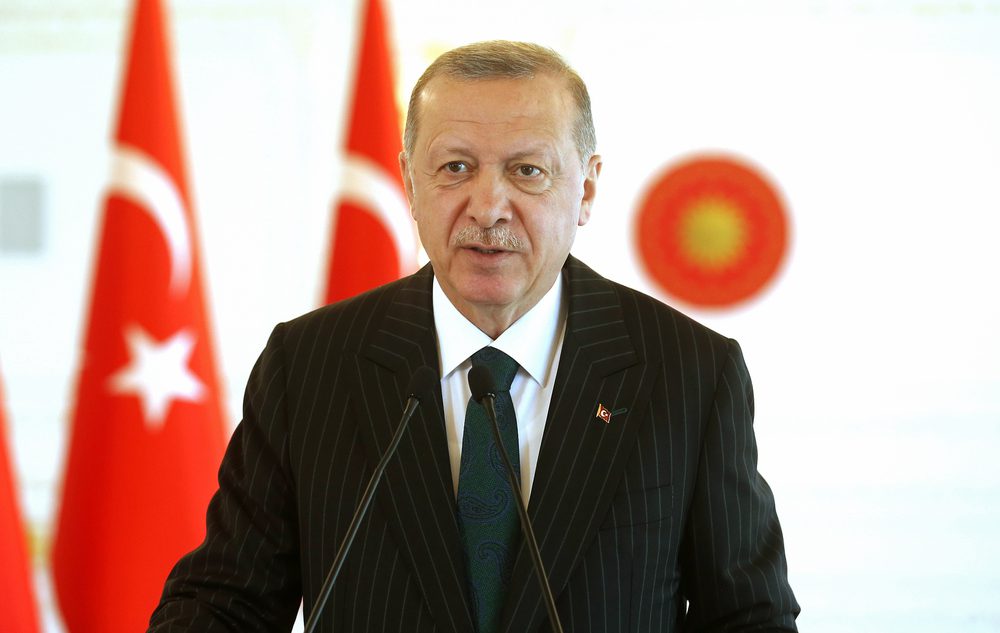
Efforts by the opposition to field a joint candidate against Turkish President Recep Tayyip Erdoğan in the upcoming elections have been frustrated. Dubbed ‘Table of Six,’ the alliance that intended to bring about the end of Erdoğan’s 20-year rule, is now a table of five.
With less than 10 weeks to go before the elections in May, the right-wing Good Party (IYI) and its allies parted ways Friday, March 3rd—a godsend for Erdoğan and his AK Party.
An unlikely pairing from the start, the center-left Republican People’s Party (CHP) and the right-wing Good Party (IYI) had been working together in elections for the last five years. In February last year, they were joined by two ‘pro-democratic’ parties who had broken away from Erdoğan’s AKP. Together with two other small parties, collectively, they became known as the Table of Six.
Within the constellation, the IYI was the second-largest party, while the CHP dominated.
All six had come to an agreement that someone from the CHP should take on Erdoğan, while it was still undecided who that would be. Although tensions surrounding the issue had been simmering for a while, on Thursday, March 2nd, the Table of Six reached an agreement, with an announcement of their candidate expected to follow on Monday.
On Friday, March 3rd, however, IYI leader Meral Akşener, dropped a bombshell. On live television, she announced that her party would not accept the candidacy of the man who had been put forward by the CHP, party leader Kemal Kılıçdaroğlu himself.
Son gelişmelere dair basın açıklamamız… https://t.co/FOmGrjW4bn
— Meral Akşener (@meral_aksener) March 3, 2023
Much to the collective horror of her allies, she accused opposition party leaders of forcing her to choose between “death and malaria,” and that “we [the IYI] would not bow to the pressure to accept him,” adding that “personal ambitions have prevailed over the interests of our country.”
As an alternative, she proposed two other CHP members, Mayor Ekrem Imamoğlu of Istanbul and Mayor Mansur Yavaş of Ankara. According to surveys, both could easily win over Erdoğan, she claimed.
Such a feat, she continued, would prove too much for the 74-year-old Kılıçdaroğlu, who, the party states, lacks charisma and, more importantly, belongs to the Alevi, a religious minority in Turkey. The latter alone could drive away potential voters in what is a majority Muslim nation.
Akşener therefore called on Imamoğlu and Yavaş to “do their duty” and enter the race themselves. Both have, however, ruled this out, standing behind their party’s choice.
While Akşener has asserted the now five-member alliance is “no longer able to represent the will of the people,” the alliance is expected to remain committed to their man, Kılıçdaroğlu.
In the wake of Akşener jumping ship, the Turkish opposition bloc has been saddled with a PR disaster, its fragmentation giving Erdoğan plenty of ammunition.
Therefore, on Saturday afternoon, March 4th, the alliance held five-hour-long emergency consultations after which it released a statement, saying that it is “determined to continue its work in the same direction, in line with its foundational principles and objectives.”
Perhaps unnecessarily vague, all five parties stated they would announce their joint candidate on March 6th.
In a separate statement, Kılıçdaroğlu decried the playing of “political games” as he extended an invitation to other parties to join the bloc. In time, he added, “everything would settle down.”
In the meantime, Turkey’s pro-Kurdish Peoples’ Democratic Party (HDP) has called on the opposition to unite around democracy, justice, and freedom “in order to raise hope.” While not part of the alliance, the HDP is the third-biggest party with 12% support nationally.
While polls indicate that a parliamentary majority would be too much to hope for for Erdoğan’s AKP and its coalition partner, the right-wing nationalist MHP, matters are less clear regarding the presidential election, also scheduled for May 14th.
Given the state of play, Erdoğan’s chances of extending his 20-year presidency have significantly improved. Indeed, as a political figure, Erdoğan remains more popular than his party.
Yet things can go either way. As of late, the statesman’s position has become precarious. As double-digit inflation continues to plague consumers, adding to Turks’ discontent was Ankara’s seemingly slow response to the devastating earthquakes last month that killed over 40,000 people.
In addition, questions have been raised about the government’s role in enforcing building codes, the failure of which, critics say, contributed to the high death toll.
